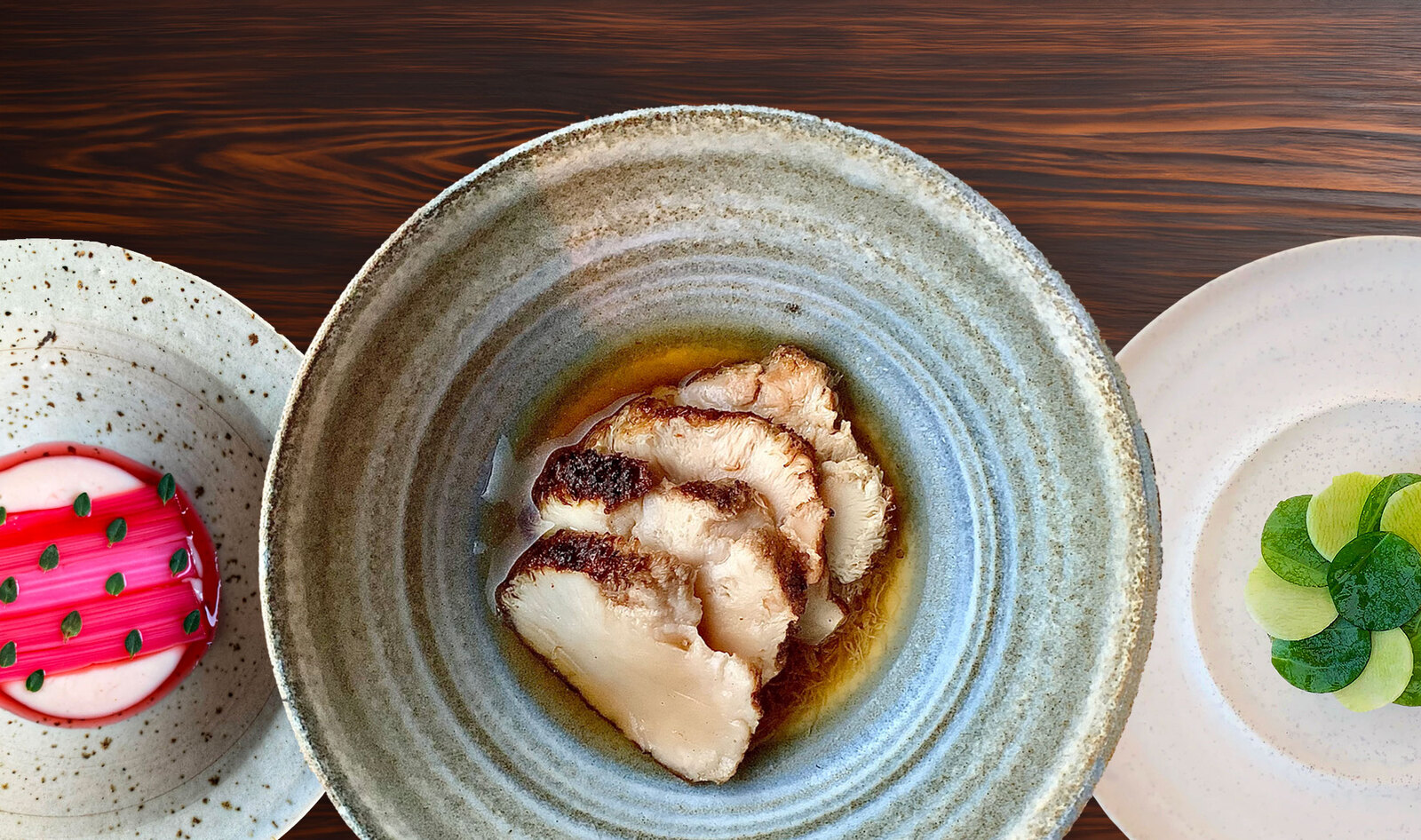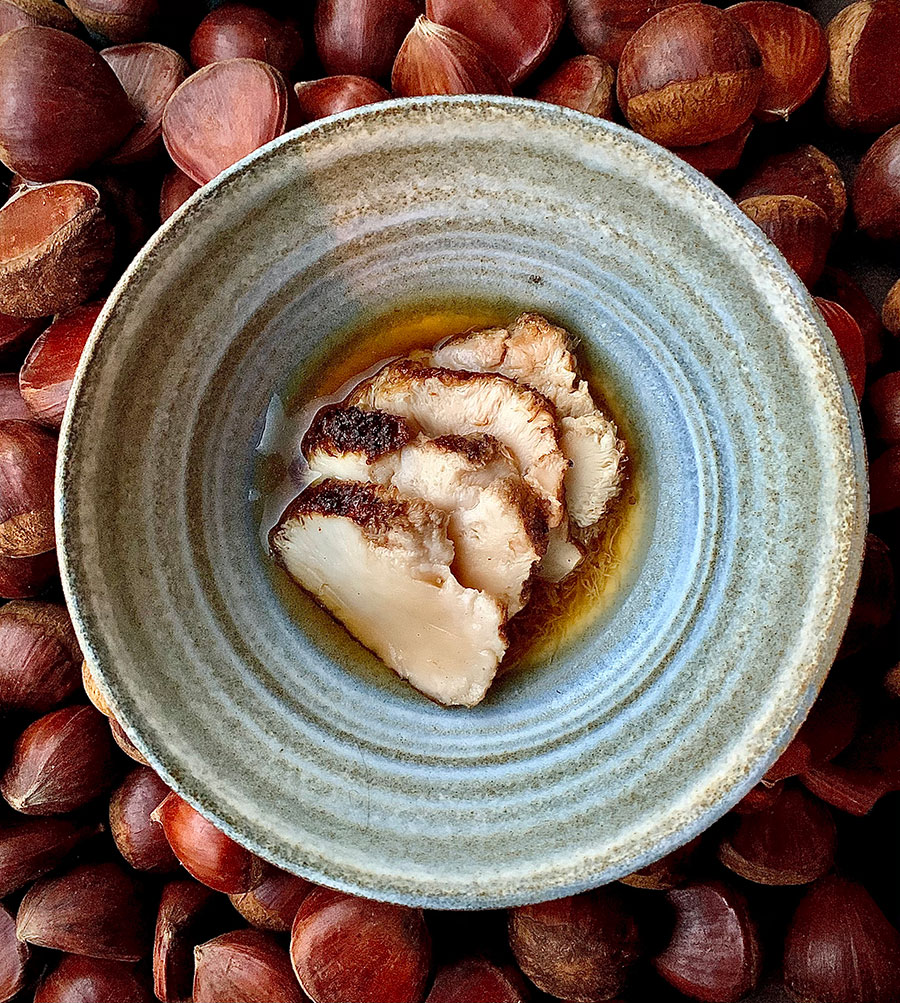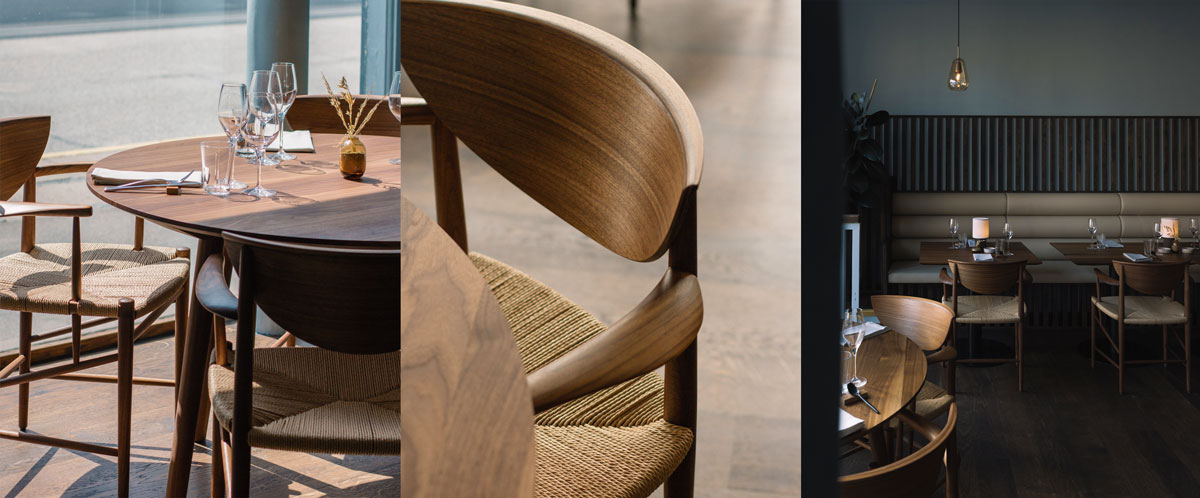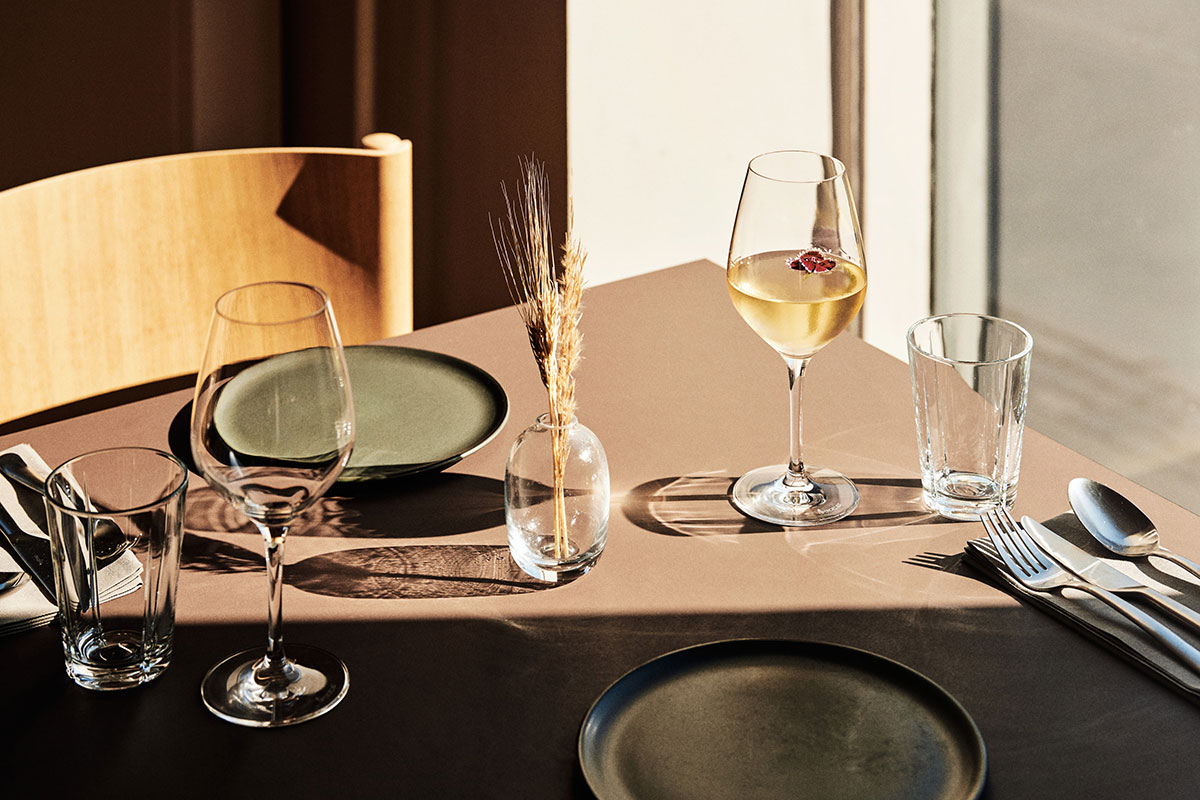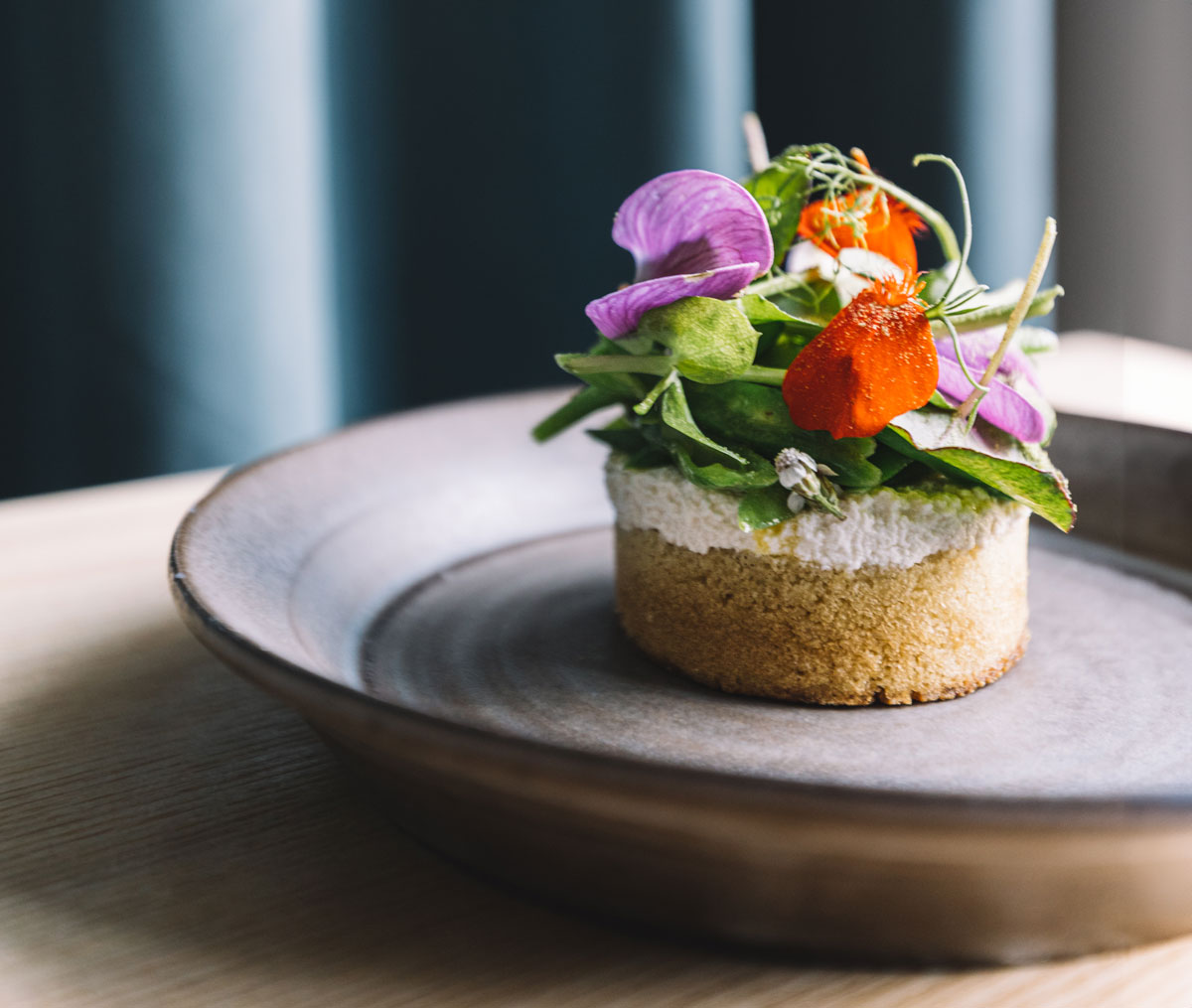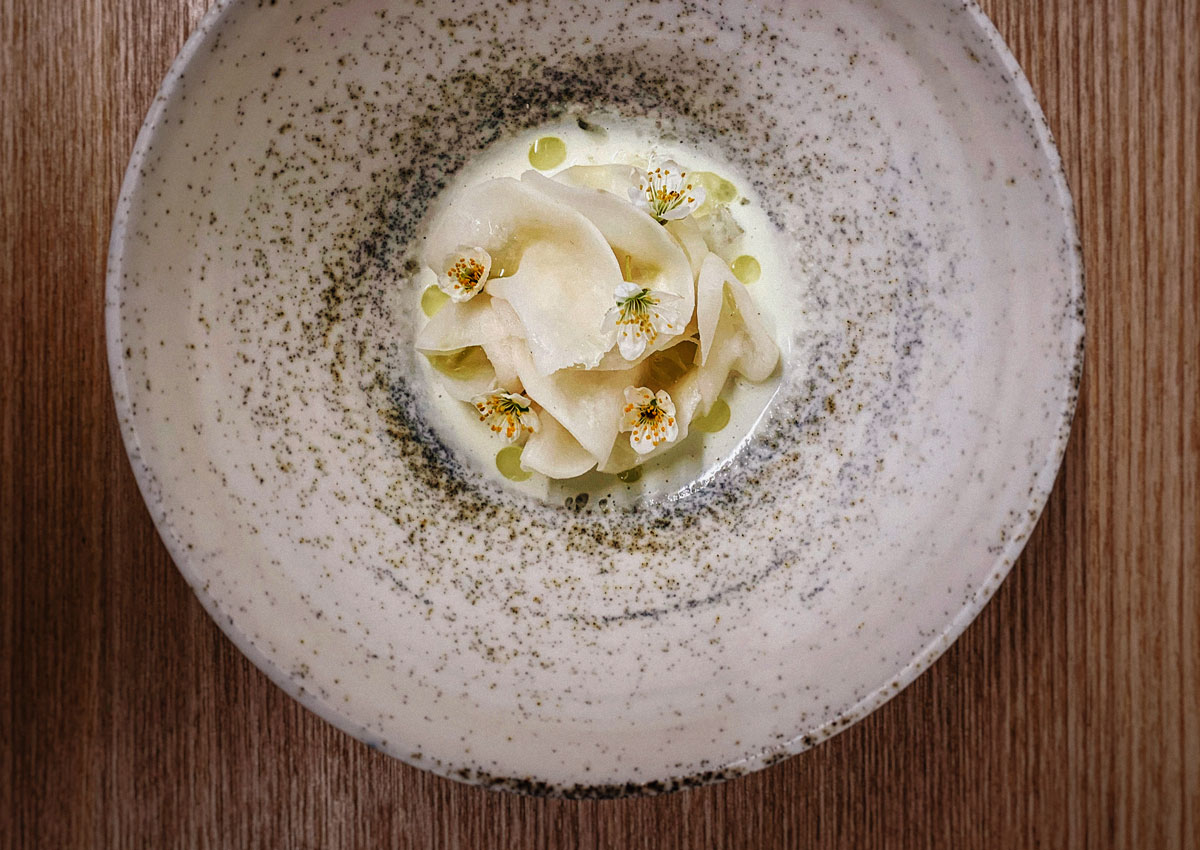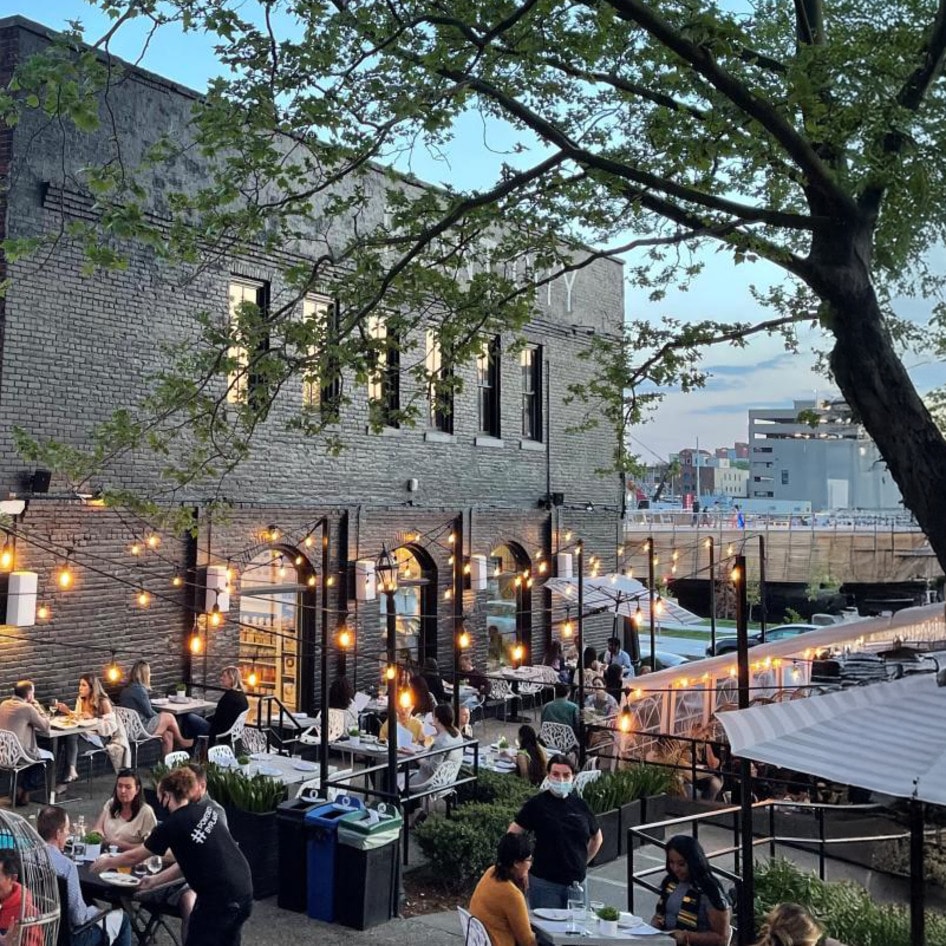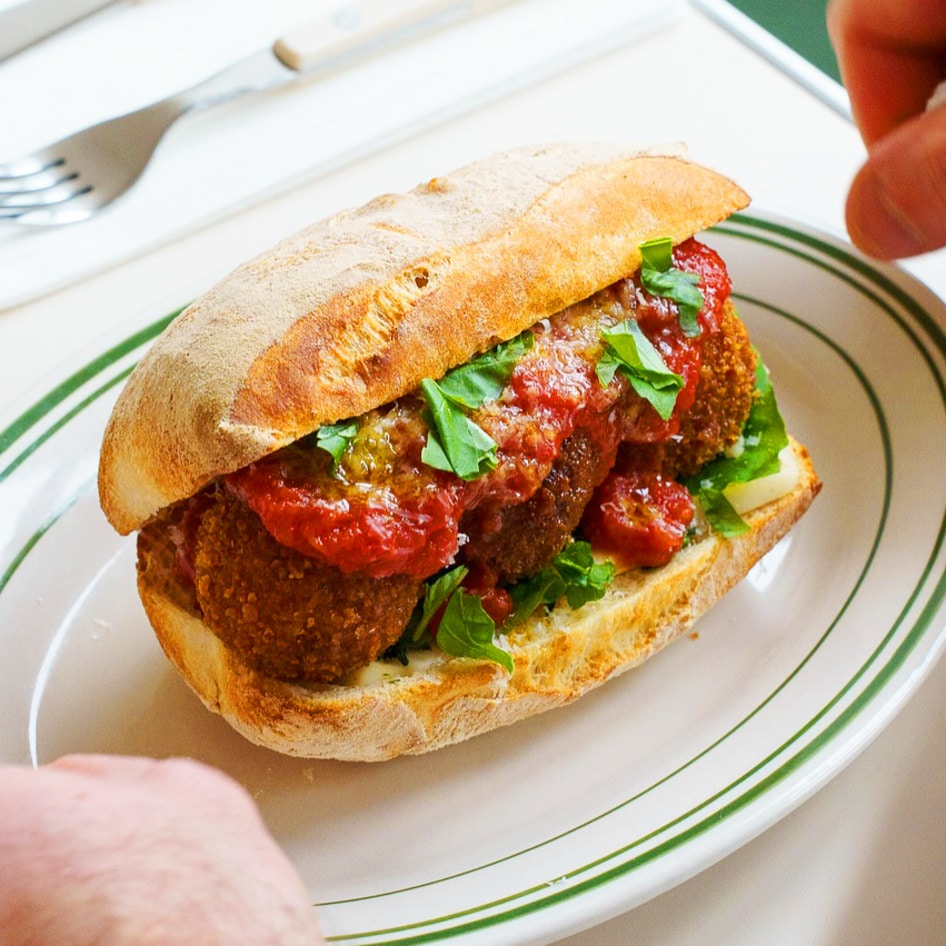My first bite at one of the most preeminent vegan restaurants in the world is a mouthful of jellied seaweed. A familiar, oniony bite melds with the refreshing flavors of the sea, along with cucumber and salted Japanese plums. The first course—made with ingredients picked up, literally, along the shores of Copenhagen that morning—opens the palate, my waiter tells me, before I’m set to dive into the rest of the evening’s celebration of regional and seasonal cuisine.
This is the common thread throughout Ark’s impressive nine-course menu. Most of the ingredients come from Copenhagen and its surrounding regions. Imported wine from around Europe is the only exception, but even then, the bottles arrive by way of a fleet of 18th-century distribution ships sailing across the Baltic. The restaurant’s staff picks them up at the harbor by bike—all in the name of lowering their carbon footprint.
Ark is at the upper echelons of plant-based dining in a city celebrated for its restaurant culture. In 2022, the city’s high-concept, fine-dining establishment Geranium won top honors in esteemed UK media company William Reed’s annual list of The World’s 50 Best Restaurants. The previous winner? Copenhagen’s legendary Noma restaurant. But after an evening at Ark, it’s hard not to wonder if a plant-based restaurant could be next.
Rewriting the narrative
Ark is the flagship restaurant of The Ark Collection—a group of three plant-based restaurants that boast relevant and innovative concepts with a focus on conscious dining.
“There’s a lot of green washing out there, so we try our best to practice what we preach, and if we can’t do something, we remain honest and transparent about it,” says Executive Chef Brett Lavender.
As an example, you won’t find the usual suspects like hummus or avocado aboard the Ark—the restaurant would have to import avocados from faraway lands, which comes with a significant carbon footprint. The fact that avocados require abundant water from a drying planet, plus have connections to deforestation and drug cartels in Mexico, further drive the fruit off the menu.
Another aspect of Ark’s manifesto is to develop a positive approach to the vegan narrative, one that’s often plagued by assumptions of militance and pompous superiority. They do that by changing the definition of what luxury food can be.
“The idea with our collection, Ark in particular, is to show the world what is possible with plant-based food,” Lavender says. “We want to show our guests that you can come to Ark and have an amazing night with interesting and innovative food, alongside great service, and by default, it happens to be plant-based.”
“All luxurious food items across history are animal products—caviar, foie gras, lobster, oysters,” he continues. “There’s an association with French cooking and luxury that everything must be cooked with butter and cream. It’s a hard opinion to change, but here we are.”
Low-waste, big flavor
Lavender and his team aim to create a new normal, to show omnivores and carnivores alike that you can eat plant-based food and feel like you’ve had a luxurious experience. However, they’re not trying to convert customers. Lavender himself is not a vegan, and you won’t find the word “vegan” anywhere at the restaurant. They specifically use “plant-based” because the seasonality of fruit, nuts, and vegetables dictate their menu. And when winter comes, they turn to the other cornerstone of their culinary philosophy: limiting waste.
The kitchen ferments and dehydrates scraps, peelings, and pulp after sauces have been strained. This gives Ark the ability to bring in sensational flavors during the tough Scandinavian winters when products are limited. They also turn to Funga Farm, a fully organic, sustainable urban mushroom farm co-owned by Ark where spores collected from Danish woodlands in a few different locations are cultivated and grown to supply Ark’s menu.
“This gives me access to specialty products, like mushrooms that are only grown for us, as well as supplying some of the top restaurants in Copenhagen,” says Lavender. “It’s just another angle from which we can attack that vegan narrative and be able to showcase some amazing plant-based products that guests haven’t seen before.”
In 2020, Michelin revealed its new Green Star, highlighting restaurants at the forefront of implementing sustainable practices on top of rigorous ethical and environmental standards that include working with local suppliers as well as avoiding food waste. The guide awarded Ark the coveted star in 2021—the first vegan restaurant in the Nordic region with such a distinction.
“Any accolade from Michelin is always welcome. Winning a Green Star is validation for all our hard work and trying to convince professional chefs that cooking plant-based food won’t kill your career,” Lavender laughs.
“Everyone looks to Michelin for what’s going on in the restaurant world. It’s encouraging that Michelin has started to award sustainable practices and take plant-based restaurants into consideration.”
The world’s finest converge on Copenhagen
None of Ark’s leadership came from Copenhagen or even elsewhere in Scandinavia, much in the same way few actors in Hollywood films are born in Southern California. Like Hollywood, Copenhagen boasts top-tier food and drink credentials to draw some of the world’s best talent—from head chefs to mixologists to wait staff.
Jason Renwick holds the title of founder, forager, and CEO of Ark. Hospitality runs through the Aussie-born surfer’s blood, thanks to a tenure in the industry stretching back to his early teens. Renwick splits his time between running day-to-day operations and foraging for his restaurants. Executive Chef Lavender comes to Ark with nearly 20 years of industry experience, ranging from his English stomping grounds to New Zealand to Japan, where he worked in some of the world’s most luxurious establishments, including two Michelin-star restaurants in Tokyo. From Japan, he brings discipline in his commitment to the craft of cooking, a respect for ingredients, and pursuit of perfection—“all attributes that I bring to Ark and instill in the team every day,” he says.
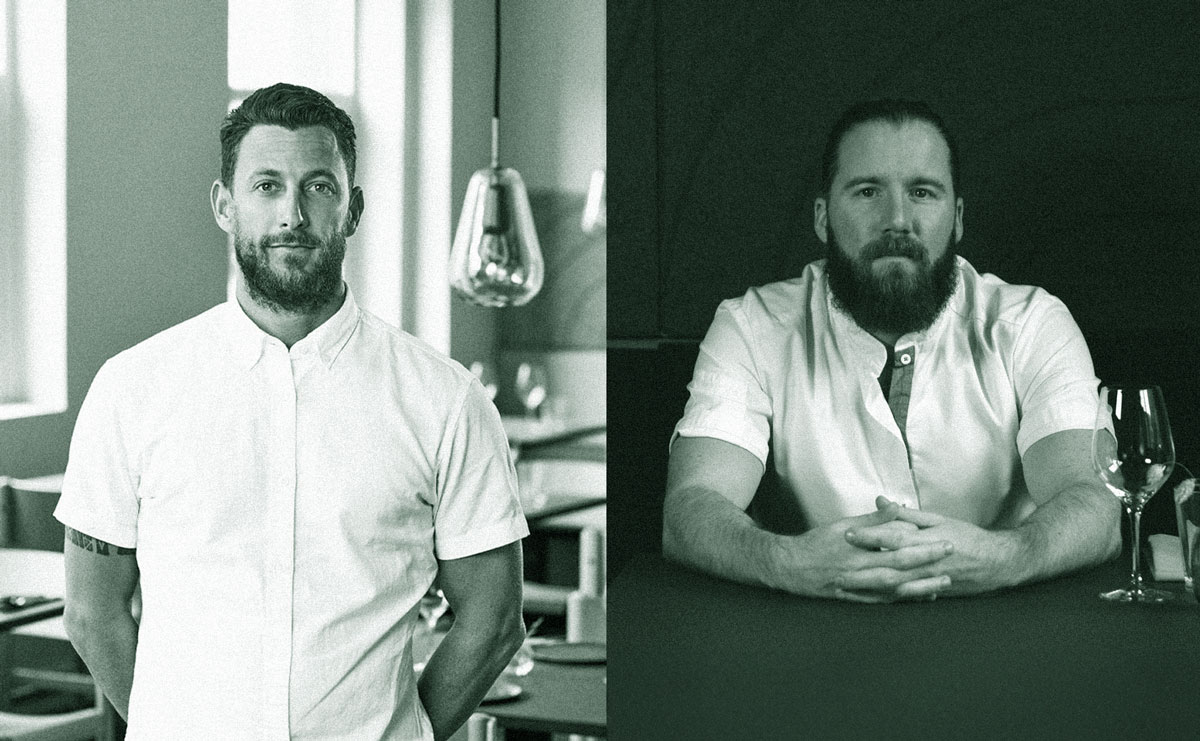 Christoffer Rosenfeldt & Zane Kraujina
Christoffer Rosenfeldt & Zane Kraujina
A night on the ark
The restaurant’s quasi-spa vibe soothes upon entry, melting away the stress of the day from your shoulders almost instantly. The ambiance is evocative of an exclusive underground club—the kind where you need to know how many times to knock to get in—but without an ounce of the pretension.
Three beaming members of the wait staff welcome me within a minute of my arrival. Once I’m seated, the waiter gives a quick background on the restaurant’s ethos and modus operandi. At its core, Ark is living the ethics of sustainability beyond the buzz of the word. The restaurant’s focus on foraging, fermenting, and local ingredients can be felt throughout the menu, with dishes like organic cabbage from the local Kiselgarden Farm paired with elderberry foraged and fermented at the peak of their season.
The meal begins with a little bubbly from the Loire Valley in France, setting the stage for an evening that’s more event than it is simply a dinner. After launching into the feast with the aforementioned seaweed jelly, there’s a sourdough crumpet with smoked ricotta that shows the diversity of the menu’s flavor profile early on. I’m told this is a nod to the chef’s Britishness.
“Let’s keep going,” my waiter says like a mountain guide leading me through uncharted territory after I finish scraping my plate clean.
Next up is a vegan spin on chawanmushi, a Japanese egg custard with spring onion and blue oyster mushrooms with an umami glaze. It looks a bit like a soupy pastel de nata thanks to the dark corn caviar. The umami dashi comes through without overpowering, making the dish an early favorite. But there’s still a lot of menu to go: brioche with fermented mushrooms and dill flowers that soaks in the most exciting flavors of the forest; gazpacho with turnips, white radish, apple, and macadamia; and a potato galette with dehydrated leek powder covered with salted kale to conclude the tracklist of savory dishes before diving into a truly outstanding dessert. A bed of fragrant and toasty puffed barley is layered with Tonka bean crème anglaise along with a caramel sauce made from 30-year-old, oak-aged cognac and macerated plum before being crowned with Ark’s signature crème fraîche ice cream.
Of course, what you won’t find on the menu are animal products. In fact, my waiter says the eatery’s name itself is a nod to the biblical ark Noah used to save animals from the flooding of the planet. Even for the most ardent, meat-eating gourmands, a meal at Lavender’s Ark—brimming with ingenuity and impeccable craftsmanship—is one of those dining experiences that prove to be difficult to forget. And who knows? Perhaps Copenhagen will find itself on the main stage again when The World’s 50 Best Restaurants declares its next winner.
For more plant-based restaurants, check out:
JUMP TO ... Latest News | Recipes | Guides | Health | Subscribe

